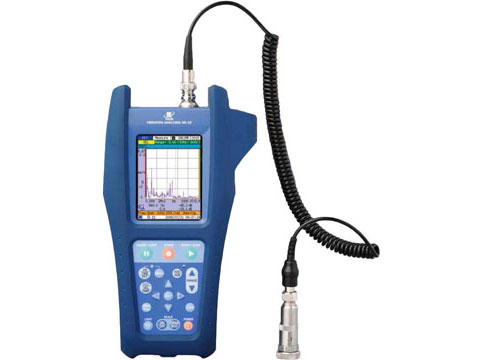A vibration meter, also known as a vibrometer, is a handheld device designed to measure mechanical vibrations in machinery and structures. It quantifies the amplitude, frequency, and velocity of vibrations, providing valuable insights into the condition of the equipment being monitored.
Types of Vibration Meters
There are various types of vibration meters available, including:
1. Accelerometers
Accelerometers are widely used for measuring high-frequency vibrations. They are incredibly sensitive and can detect even minor vibrations, making them suitable for precision applications.
2. Velocity Sensors
Velocity sensors measure the speed at which an object vibrates. They are particularly useful in monitoring rotating machinery, such as motors and turbines.
3. Displacement Sensors
Displacement sensors measure the distance between two points on an object, allowing for precise assessment of structural vibrations.

Industrial Applications
1. Predictive Maintenance
By regularly monitoring vibrations in machinery, operators can detect anomalies and potential issues before they lead to costly breakdowns. This proactive approach helps reduce downtime and maintenance costs.
2. Quality Control in Manufacturing
In manufacturing, maintaining product quality is paramount. Used to ensure that production machinery operates within specified tolerances. Any deviations in vibration patterns can indicate defects in the manufacturing process.
3. Structural Health Monitoring
Vibration meters are essential for assessing the structural integrity of buildings and bridges. They help engineers identify potential weaknesses and make informed decisions regarding maintenance or repairs.
Construction Industry
1. Foundation Assessment
When constructing buildings and infrastructure, it's crucial to assess the soil and foundation conditions. It help engineers evaluate the impact of construction activities on nearby structures and ensure their stability.
2. Equipment Calibration
Construction machinery, such as cranes and pile drivers, must be calibrated to prevent excessive vibrations that could lead to accidents or structural damage. Aid in this calibration process.
Automotive Sector
1. Vehicle Testing
In the automotive industry, They are used to test vehicle components for durability and performance. From engine components to suspension systems, these devices ensure that vehicles can withstand various road conditions.
2. Ride Comfort Analysis
Car manufacturers use these meters to assess ride comfort, identifying and reducing vibrations that could lead to discomfort for passengers.
Vibration meter in laboratory
A vibration meter in a laboratory is a crucial instrument used to measure and analyze vibrations in various scientific and industrial applications. It helps researchers, engineers, and technicians assess the magnitude, frequency, and other characteristics of vibrations, which can be caused by machinery, equipment, or natural phenomena